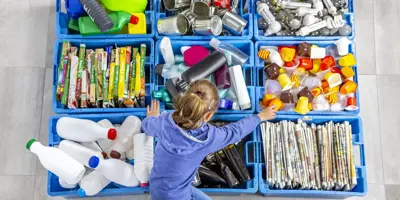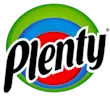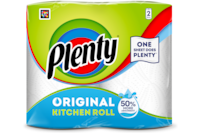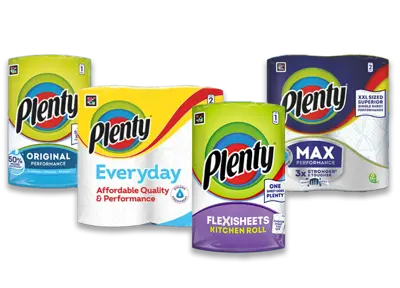7 people found this helpful
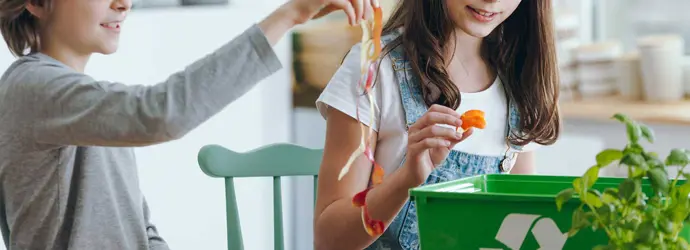
Toilet rolls, toilet rolls, toilet rolls – we all visit the bathroom, we all use them, and we all... leave them on the side to start forming a small army of cardboard tubes before someone else finally caves and gets rid of them! But are they going in the right place? That all depends on whether they’re made from compostable, biodegradable and non-biodegradable materials. But do we truly understand what is biodegradable – and just as importantly, what isn’t?
Let us demystify this buzzword and explain the differences between biodegradable, non-biodegradable and compostable materials, and answer the question ‘what is biodegradable plastic?’ Knowing answers to these questions can help you reduce your waste and environmental impact in the long-term, so why wait? Let’s get into.
What does biodegradable mean?
Let’s start with a ‘biodegradable’ definition. If something is biodegradable, it means it can decay naturally. Put simply, it’s organic matter that can be decomposed of by bacteria or other living organisms. That could take just a few months, but it could also take hundreds of years, depending on the material and the environment it’s in.1
It’s important to note that there’s a lot of science behind what can be considered biodegradable and non-biodegradable. Given enough time (into the thousands of years), most objects will decay or biodegrade. It’s a technicality, but one worth knowing. In this article we’ll differentiate between what can ‘healthily’ biodegrade (like vegetation) and what isn’t healthy to leave to biodegrade (like certain plastics and metals).2
What’s the difference between biodegradable and non-biodegradable?
To help explain this concept further, first we’ll look at the difference between biodegradable and non-biodegradable materials.
Biodegradable items typically break down into the soil with the help of bacteria and other microorganisms in a shorter timeframe.1 That isn’t necessarily the case for materials that are non-biodegradable, meaning they can take a longer time to break down.3 The difference between biodegradable and non-biodegradable isn’t always clear, though, and where we draw the line between the two terms is hotly debated!3
What is non-biodegradable?
So that’s the non-biodegradable meaning and differences sorted. Let’s start with some examples of what is non-biodegradable:
- Plastics – such as tyres, bags, bottles etc.
- Metals – such as cans, tins etc.
- Certain construction waste – such as concrete and metal
- Electrical hardware – such as cables, wires, DVDs, computers and mobile phones.
- Any material with a lot of chemicals would be difficult to degrade in safe way
What are biodegradable materials?
We know what isn’t biodegradable, but what are biodegradable materials?
- Food waste
- Human waste
- Animal waste
- Plant products
- Paper
- Plenty kitchen roll sheets
- Natural wood
- Grass clippings
- Leaves
By answering the question ‘what is a biodegradable material' you can be better informed on how to dispose of your waste and contribute towards a healthier planet.
Tip
Plenty Original kitchen roll sheets are now certified compostable!* Now life’s little messes can be turned into something positive for your garden. Find out exactly how to use our compostable kitchen roll sheets by checking out our FAQs!
What is biodegradable plastic? Is it better for the planet?
We said that plastics aren’t biodegradable, and they aren’t. Enter ‘biodegradable plastic’. Once heralded as part of the solution to the issue of plastic waste and its pollution, biodegradable plastics seemed like they could be the real deal. But the truth isn’t as simple as it might seem.
While biodegradable plastics are designed to break down with the help of microorganisms, there are some specific conditions needed for this to happen. For example, if the biodegradable plastic is buried in a landfill with little exposure to heat, bacteria, light or moisture, the material may not break down at all.5
What’s more, when they break down biodegradable plastics release carbon dioxide and methane, gases which – as of 2015 - collectively comprised 92% of all greenhouse gases.6 One study even found that biodegradable plastics produced the most methane in the average landfill.7
The alternatives: compostable plastics and bioplastics
If all of this is making your head spin, don’t worry. The facts about climate change can be alarming, but it’s important to take stock of what you yourself can do and not get overwhelmed by the bigger picture.
They say necessity is the mother of invention – so let’s take stock of some newer materials like bioplastic and compostable plastics. These are exactly what they sound like: materials that are often made from plant-based materials and can be broken down into compost (just like select Plenty kitchen roll sheets)!
Just remember to check where you can dispose of compostable plastics – the majority will need to be industrially composted and can’t be composted at home. Check with your local council to find out exactly what they can take in for industrial composting.
What’s the difference between biodegradable and compostable?
So that’s a “biodegradable” definition sorted, but what about “compostable”? Biodegradable is easily confused with compostable, as they both mean that a material is technically able to degrade. However, there are a few key differences between what makes a material compostable or biodegradable.
1. Compostable materials will break down into all non-toxic components.
Just because something is biodegradable, it doesn’t make it compostable. Many products can be given a ‘biodegradable’ label because they will eventually break down, but that doesn’t automatically mean they will break down quickly, and as we’ve learned, they could break down into toxic components if the original material contains harmful chemicals.
All materials in a product that are compostable must be verified based on current standards for compostability including biodegradability, disintegration, eco toxicity and quality of the final compost.4
2. Materials must break down within a certain timeframe to be compostable
Plus, like biodegradable materials, compostable materials take different lengths of time to break down. But there’s a specific amount of time that materials have to decompose within to be able to be legally labelled compostable. In the UK, for example, a material has to be certified to break down in industrial composting facilities within 180 days – that’s the type of composting facilities that local councils have.8
If you’re a bit of a newbie to composting, or just want a bit more information on the power of composting, check out our very handy guide on the basics of composting, including a more detailed breakdown of how it all works.
Plenty and the environment
Here at Plenty, we’re working towards developing products and solutions for a circular society by introducing more recycled and recyclable materials into our packaging. In fact, with the use of recycled plastics, we’ve reduced the carbon footprint of our packaging. One of our key commitments is to reduce our greenhouse gas emissions by 25% by 2030 from a 2016 base-year. Why not check out some of our other sustainability initiatives?
The environmental advantages of biodegradability and compostability
There are obvious environmental benefits to biodegradable and compostable materials that break down quickly in environments such as industrial composting and well-managed home composting. These include reducing the amount of waste sitting in landfill, and reducing the resulting levels of pollution in soil, groundwater, and the air. Sending these types of materials to landfill is the least favourable option, but if the gas from degraded materials is captured then the negative impact is reduced.
How to compost at home
If you have your own compost bin at home, there are certain food and drink scraps and garden materials that you can add to the heap. These include green waste from your kitchen, such as tea leaves (and tea bags that are specifically labelled ‘home compostable’), coffee grounds, and fruit and veg scraps. Check out our handy guide for more information as to what you can and can’t put in the compost bin.
Understanding the differences between biodegradable, non-biodegradable, and compostable materials is a simple yet impactful step towards a greener, sustainable future. Remember, your choices matter. Small actions, like using compostable products, can contribute to a healthier planet. Embrace these alternatives, and with a little effort, we can collectively make a big difference. So, let's step up and take the eco-friendly path to a brighter future!
*Plenty kitchen towels are certified as home and industrially compostable according to NF T 50-800 and EN14995.
Sources:
2 Consumers, Plastic, and What It Means To Be “Biodegradable”, Sanya Shahrasbi*
5 The Guardian, Biodegradable plastic bags carry more ecological harm than good
6 Center for Climate and Energy Solutions, Global Emissions
8 London Recycles, Compostable, biodegradable, recyclable – what’s the difference?
Related articles
Clean and green! 10 tips for eco-friendly cleaning
From baking soda and lemon cleaning methods to a surprising kitchen cupboard treatment for mould, read our sustainable cleaning products ideas for your home!
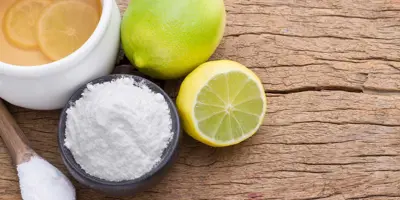
7 steps to create a DIY cardboard castle at home
Learn how to make a cardboard castle to fit their favourite interests. Find step-by-step cardboard castle DIY instructions and theme ideas here.
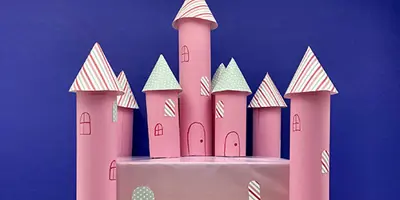
Reducing waste at home: The easy way
Find out how to save energy at home and reduce food waste with our top tips. Read on for handy pointers for making your household more eco-friendly.
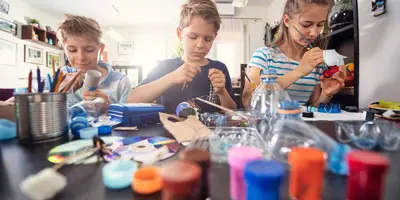
6 tips on how to save water at home
Learn how to save water at home. Find five easy ways to conserve water, so you can bring down your waste and make some clever savings in the process, here.

How to lead a sustainable lifestyle in 5 key ways
Learn how to live more sustainably with our tips on diet, methods of transport, energy consumption and product choices. Find sustainable living examples here.
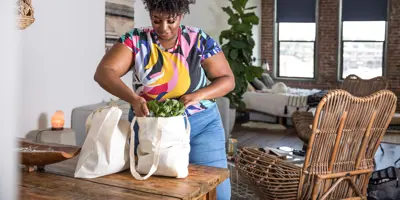
How is plastic packaging recycled, and what does it get turned into?
How can plastic be recycled? Discover the steps that plastic goes through in the recycling process, and how much plastic is actually recycled, here.
